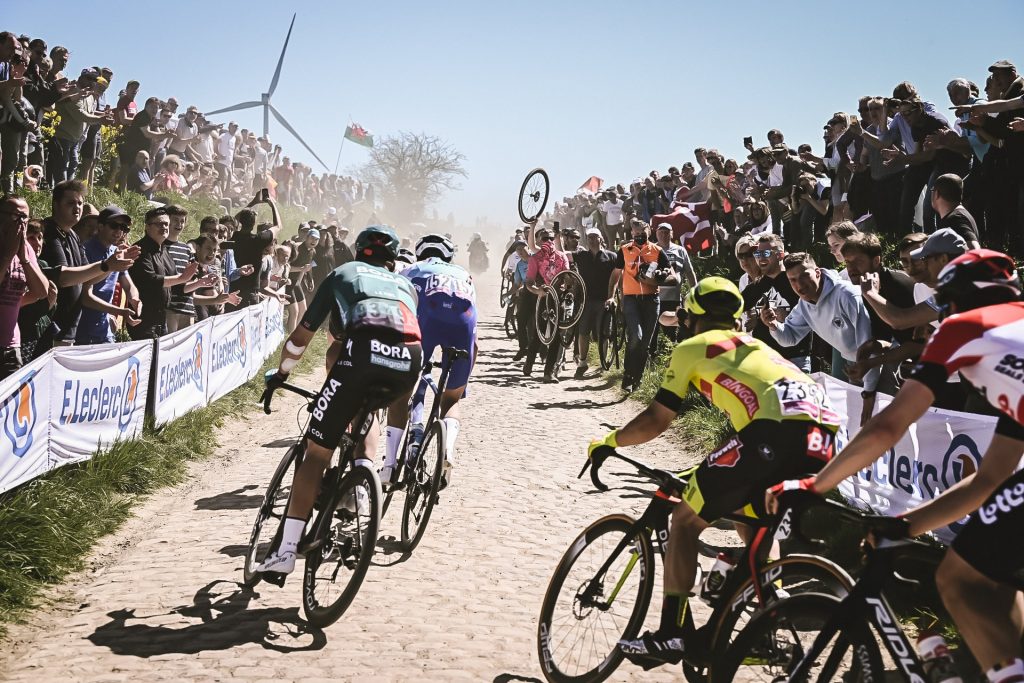Date: Sunday 23 April, 12.30pm-3.30pm at Richmond
Booking Information: More details coming soon!
Going Long - Keeping Strong!
With the upcoming Perform Event Special, the amazing Perform the Roubaix on the 23rd April 12.30 at our Richmond Studio, we have put together the following on how to best prepare yourself for the longer time spent on the studio saddles. The key to longer event training is to build up your aerobic capacity and endurance tolerance.
Firstly some specific training principles.
To improve you need to overload your body, ask it to do more than it’s used to doing. Then you need to allow time to recover!! After which you are fitter!!. If you just do the same every week and don’t stress your body any differently, you don’t improve. To improve you need to increase “one” of these key factors at a time:
How often (frequency) you ride
How much (the time) you ride
How hard (intensity) you ride
Training needs to also include Recovery as well as Progressive Overload. Your body only adapts to the Overload during Recovery, not during the Overload itself. To increase the Overload, follow these four principles:
1. Increase just ONE type of overload at a time.
2. Mix Hard, Moderate, Easy and Rest days each week.
3. Progressively build your training for three to five weeks or alternate harder and easier weeks with each pair of weeks progressively harder. (This is built into the DNA of Perform classes so an easy option is to mix Crit, Threshold and Endurance and Ride classes into your weekly mix.) Then cut back for a Recovery Week before ramping up again.
4. Every two to three months take a physical and mental break for a week. As you add intensity to training you also need to train more responsibly. It’s essential to give your body time to rest, recover and grow stronger. Keep in mind that the best way to overall fitness includes variation. In addition to on the bike sessions building functional muscle will provide many benefits, including improved cycling performance, endurance, and speed. Our Barre, Yoga, Strength, Breath-Work and Circuit Classes are a fantastic way to add this variety and can also help you reverse the few negative consequences of spending a lot of time on a bike. The right mix of workouts will improve and increase muscle mass, build bone strength and reduce the risk of injuries, improve flexibility in joints, help manage weight, shift to a healthier body composition, and just make everyday, functional movements easier.
https://www.digmefitness.com/workout/barre
https://www.digmefitness.com/workout/yoga
https://www.digmefitness.com/workout/strength
https://www.digmefitness.com/workout/breathwork
https://www.digmefitness.com/workout/circuits
Getting & Staying Comfortable
Obviously for longer events you will be spending more time on the bike and it makes sense to optimise your comfort, this involves a number of factors. Firstly bike position and setup. As you may have noticed we have started offering bike setup workshops, pop along and discover how a few simple changes can make a world of difference to both your comfort and ability to produce more power. Clothing, there is a reason that most cyclist wear bike shorts, they are designed to ensure your connection to the bike on the saddle is as comfortable as possible, these shorts come in a wide variety of designs, some with shoulder straps some without, but spend some time finding a brand that works for you.
Fuelling the Ride
What to eat before the ride? There are two main concerns regarding pre-training preparation - Having enough energy, and ensuring that you allow enough time after your last full meal in order to digest before your session starts. In practical terms, that means you need to start your session 2-3 hours after your breakfast/ lunch/dinner. Or you will need a small snack 1 - 2 hours in advance. A banana, fresh dates or energy bar is enough; if you happen to eat just before the ride, a dedicated nutrition gel for cycling will do the trick too. Nutrition for longer rides differs! This will vary according to the individual and the intensity at which you're riding, but aim for around 30-60g of carbohydrate per hour or between 0.5-1g of carbohydrates per kilogram of bodyweight per hour - and it is all about carbs when you're on the bike. Again there is wide range of available products Gels, Powders to mix in your bottle and bars. There will be just like a real event neutralised feed sections so don’t feel the need to skip keeping yourself well fuelled. Hydration is just as important during a long ride as fuelling. Much like fuelling, there is no one-size fits all advice when it comes to how much to drink, aim to consume 500ml per hour.
Hopefully this gives you some useful guidelines and tips and now you have time to get into tip top shape before our first event Perform the Roubaix.



COMMENTS (0)
Be the first to comment!
Please login to comment